This article was co-authored by Trudi Griffin, LPC, MS. Trudi Griffin is a Licensed Professional Counselor in Wisconsin specializing in Addictions and Mental Health. She provides therapy to people who struggle with addictions, mental health, and trauma in community health settings and private practice. She received her MS in Clinical Mental Health Counseling from Marquette University in 2011.
There are 21 references cited in this article, which can be found at the bottom of the page.
This article has been viewed 26,270 times.
Stress is a common side effect to worry or anxiety. When things aren't going well, or something isn't quite right, you might start to feel stressed. If you are feeling stressed, there are several things you can do to relax yourself quickly. When facing longer term stress in your life, you can use different strategies to reduce stress and remain calm.
Steps
Reducing Stress Quickly
-
1Take a few deep breaths. Deep breathing can activate the body's calming response. These are the kind of breaths that expand your belly when you inhale. As you exhale, imagine the stress leaving your body. Squeezing something like a stress ball in time with your breathing can help you focus on your rhythm.[1]
- If your stress is high, and you are having trouble slowing your breathing, try offering some resistance to slow down the breathing process. Purse your lips, clench your throat, or breathe through another object like a straw to cut down on the amount of air flowing in and out. This will force you to slow down your breathing in order to get the air you need.
- If you have a little more time (that is, you aren't surrounded by other people expecting something immediately), you can take a little more time to breathe properly. Find a comfortable position, sitting, standing, or even lying down if possible. Breathe gently and regularly, in through your nose and out through your mouth. Repeat for three to five minutes. By focusing on your actions, you can stop thinking about what is stressing you.[2]
-
2Smile. Even faking happiness can trick you into feeling happy. Put a smile on your face, even a goofy grin, and it will be hard to stay as stressed.[3]
- Relaxing your forehead, especially the area between your eyebrows, is another good facial muscle to force into a less stressful position. A furrowed, or tightened brow, is a common sign of anger or stress, so forcing it into a relaxed state can help to diminish those feelings.
Advertisement -
3Massage tense areas. Many times, you can feel the stress in specific parts of your body. This is common if your stress involves your physical health, but also the case if your stress is from worrying. Giving yourself a gentle massage in some areas may also help to calm you down.[4]
- Find an area of your body that feels tense, and gently massage it to relieve some of the tension.
- If you are not comfortable giving yourself a massage, then consider visiting a professional massage therapist.[5]
-
4Listen to music. Listening to some of your favorite music may help you to calm down as well.[6] Slow, quiet classical music is generally best, though it's always good to find something you enjoy. If heavy metal or arena rock helps you release tension and ignore your stress, go for it.
- Keep CDs or a music player nearby, and take the effort to turn it on if you start to feel stressed. Get into the habit of listening to music when driving, walking around, or doing anything that doesn't require you to communicate with others.[7]
- Singing along can also be a good way to engage your brain in something other than your stress. If you can't get any music to sing along to, humming your favorite tune or just singing out loud without the music can work just as well. Just be sure to take note of your surroundings, and try not to sing so loudly at the office that you distract others.
-
5Try aromatherapy. Although aromatherapy is not a proven method of stress relief, some studies have shown that aromatherapy can have a significant effect on stress.[8] If you find aromatherapy helpful, then it may provide another stress reduction option for you. Try keeping some relaxing essential oils nearby to inhale when you are feeling stressed.
- Lavender has been used in aromatherapy studies and it seems to reduce stress.[9] Try wearing a lavender scented lotion or adding a few drops of lavender essential oil to the edge of your sleeve so that you will be able to smell it all day.
-
6Exercise. Working up a sweat is a good way to release some physical tension. Exercising causes your body to release endorphins, which are your body's own natural painkillers. Exercising can also make it easier to fall asleep at night, which can also help to reduce your stress levels.[10]
- Try to work in a few minutes of exercise when you're feeling stressed, or perhaps set aside some time every day to do some physical activity. For example, you could take a brisk walk around your neighborhood, go on a bike ride, or hit the gym right after you get off of work.
-
7Find a distraction. Distracting yourself has been found to be effective at reducing stress in certain situations as well.[11] If you are feeling stressed about something, then try to find a way to distract yourself for a little while.
- Sometimes a simple chore like washing dishes, organizing a closet, or anything else that requires your concentration, can help to take your mind off the things causing you stress. This will allow you to relax and refresh.
-
8Take a nap. Not getting enough sleep can contribute to stress and it may also intensify symptoms of other psychiatric disorders.[12] That is why it is important to make sure that you are getting enough sleep and taking the occasional nap may help. There are a number of companies that allow their workers to nap, or even provide a space for them to do it in.[13]
- Find a quiet, comfortable place that you can make as dark as possible. Figure out how long you intend to nap. 10-30 minutes is good for a power nap, though you may want a little longer if you are really tired. Set an alarm, and make sure that when it goes off, you get up and back to work. Don't forget to block out a little bit of time for you to fall asleep before setting the alarm.
- If you are at work, and can't get comfortable, consider taking a nap in your car or going home for a nap during lunch if you have time. You can keep a sleep mask in your car to help block out the outside light and maybe even play some soothing classical music on your car stereo.
Reducing Stress in Your Life
-
1Identify the things that cause you stress. Worrying about something can be healthy, a reminder of something that needs to get done. Recognize that your stress is your body sending you a message, and consider what you need to do to resolve its causes.[14]
- Sometimes stresses are signs of negative situations in your life. They could come from toxic friendships or troubles at work. It may also be stress brought on by getting too much in the way of negative substances, like alcohol, caffeine, or junk food. Identifying these stresses can help you address them by changing your behavior.
- Your stress may also be the result of cognitive distortions, where you incorrectly interpret the world around you. Try to stop negative thoughts and change negative thought patterns such as catastrophizing (only thinking of the worst case scenario) or filtering (where you ignore potential good aspects and focus on the negative). Recognizing that you are making these mistakes can help you find ways to move past them and calm your stress.[15]
-
2Make a list of things to do. Spelling out all the things you need to get done can help focus your mind on what is out there, and perhaps let you know it is less than you initially feared. Plus, as you accomplish things, you'll be able to cross them off the list, which always feels good.[16]
- It's possible that your to-do list is too long, that you notice more things on there than you have time to accomplish. This can clarify your working conditions and help give you reasons to turn things down. Your first responsibility is to your own health and time, and if you don't have time for something, it's good to know that and say no to additional tasks.
-
3Get regular sleep. Not getting enough sleep at night can contribute to stress, but getting enough sleep at night may help you to feel calmer during the day. This may be because getting enough sleep can benefit your emotional health.[17]
- Keep in mind that eight hours of sleep per night is considered ideal not only for your health but also to relieve stress at night. Some people need a little more or less, though.
- Depriving yourself of sleep can make your stress levels worse, so make sure that you make sleep a priority. Go to bed at the same time every night and develop a bedtime routine to make it easier for you to fall asleep and stay asleep.
-
4Try some relaxation techniques. Using relaxation techniques can reduce the effects of stress on your mind and body and help to produce a sense of calm. Relaxation techniques take your mind off of other concerns by turning your awareness to your own body. There are several common relaxation techniques, and they can all help reduce stress. Pick the one that makes you most comfortable.[18]
- Autogenic relaxation. This refers to focusing on something that comes from you. Think of an object or repeat a mantra in your mind. This should be a place, object, idea, or statement that gives you some happiness and allows you to relax. By thinking of this other thing, you take the focus off of your stress
- Progressive muscle relaxation. This exercise involves you slowly clenching and relaxing the muscles in your body. Tense for about 5 seconds, then relax for 30, thinking not just about moving your muscles, but how it feels when they are relaxed. It can help to start in one part of your body, maybe down at your feet, and work your way up your body, tensing and relaxing all your muscles in succession.
- Visualization. This involves you forming mental images to take your mind to a relaxing place. As you visualize, think about the way your different senses feel the place you have gone. For example, if you are visualizing yourself on a beach, include thoughts about the sound of crashing waves and the feel of sand between your toes.
-
5Give yourself time to worry. Schedule some time during your day or week, maybe 30 minutes, to be concerned about the stressful things you are facing. That way, if you start to feel stressed while working on something, you can easily tell yourself it's not time for that, and stay focused on what you need to do.[19]
- During your worry time, try to use problem solving to find solutions to some of your worries that you can control. For example, if your boss is angry and overbearing, then you can decide to look for a new job. If you are worrying about problems that you cannot control, then look for ways to reduce your stress instead.
-
6Practice keeping calm by putting yourself in stressful situations. The best way to improve anything is to practice. Find things that stress you out, like doing certain kinds of work, or waiting in long lines. Every once in a while, deliberately choose to do those things, and practice ways to relax in the process. This can prepare you for the times you aren't ready for those situations, training your mind and body how to react properly.[20]
-
7Consult a counselor or therapist. If stress and anxiety is proving too strong, and you are unable to calm yourself effectively, either in the moment or in general, consider talking to a mental health specialist. Sometimes talking to a trained person can help you work through the things causing you stress in a way you can't do on your own.[21]
References
- ↑ https://www.betterhealth.vic.gov.au/health/healthyliving/breathing-to-reduce-stress
- ↑ http://www.nhs.uk/conditions/stress-anxiety-depression/pages/ways-relieve-stress.aspx
- ↑ https://extension.umn.edu/two-you-video-series/smiling-reduces-stress
- ↑ https://www.helpguide.org/articles/stress/relaxation-techniques-for-stress-relief.htm
- ↑ https://www.sciencedaily.com/releases/2020/09/200918104305.htm
- ↑ http://www.apa.org/monitor/2013/11/music.aspx
- ↑ http://psychcentral.com/lib/the-power-of-music-to-reduce-stress/?all=1
- ↑ https://health.clevelandclinic.org/stressed-out-aromatherapy-can-help-you-to-feel-calmer/
- ↑ http://www.ncbi.nlm.nih.gov/pubmed/24238073
- ↑ http://www.adaa.org/living-with-anxiety/managing-anxiety/exercise-stress-and-anxiety
- ↑ https://www.bbc.com/news/health-31044571
- ↑ http://www.health.harvard.edu/newsletter_article/Sleep-and-mental-health
- ↑ http://io9.gizmodo.com/the-science-behind-power-naps-and-why-theyre-so-damne-1401366016
- ↑ http://psychcentral.com/blog/archives/2012/02/22/3-practices-to-calm-an-anxious-mind/
- ↑ https://share.upmc.com/2021/05/cognitive-distortions/
- ↑ https://www.health.qld.gov.au/news-events/news/how-to-reduce-stress-right-now
- ↑ https://www.heretohelp.bc.ca/how-use-power-your-mind-and-body-reduce-stress-and-sleep-better
- ↑ https://www.healthdirect.gov.au/relaxation-techniques-for-stress-relief
- ↑ https://www.health.harvard.edu/blog/two-techniques-for-reducing-stress-201104092235
- ↑ https://my.clevelandclinic.org/health/articles/6392-stress-coping-with-lifes-stressors
- ↑ https://medical.mit.edu/community/stress-reduction
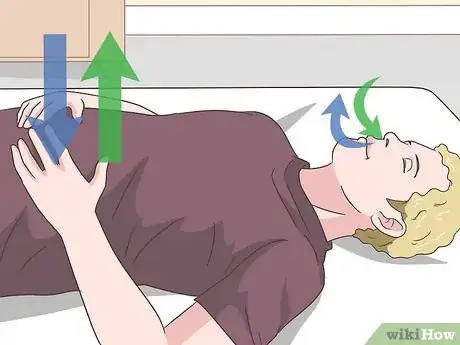

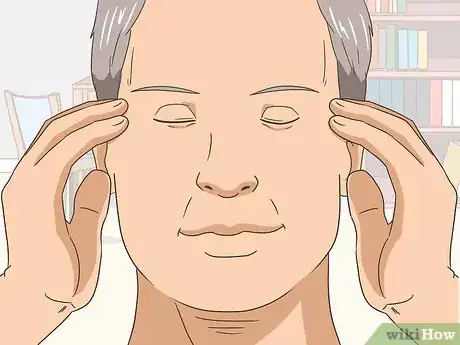

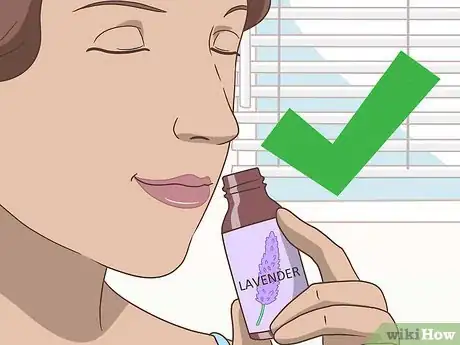

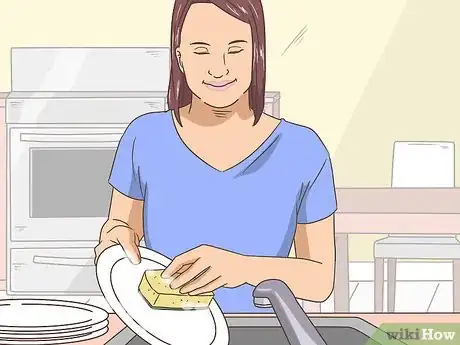
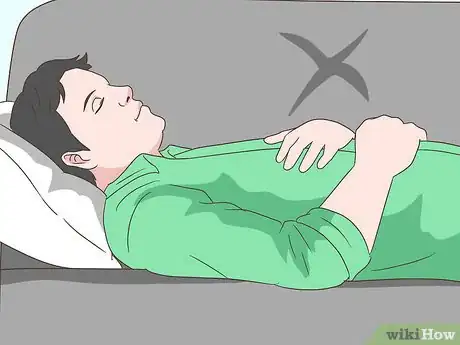
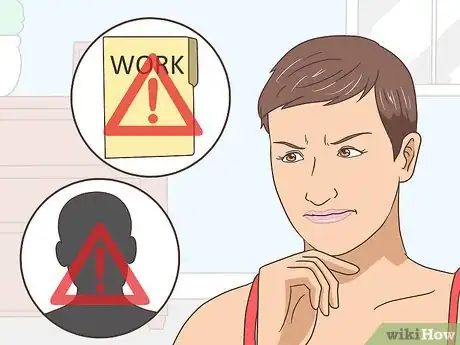
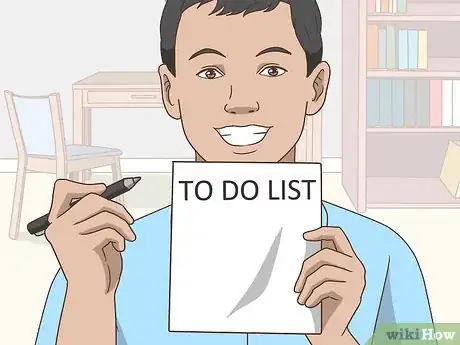
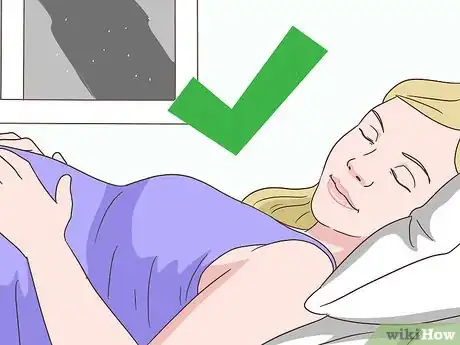
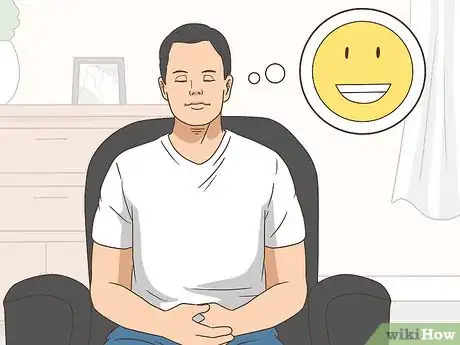
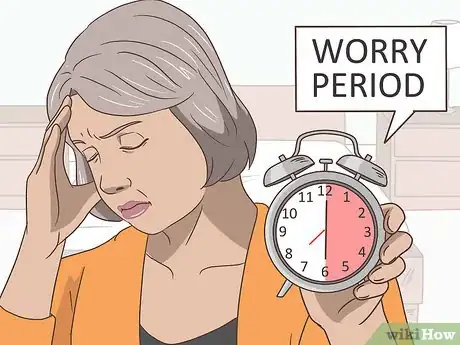

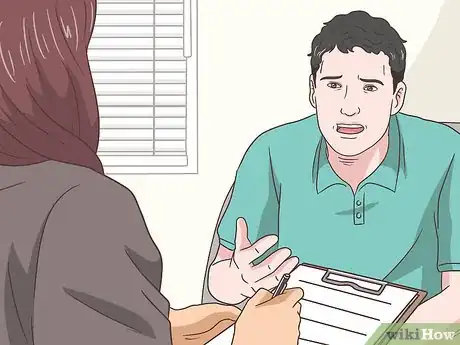


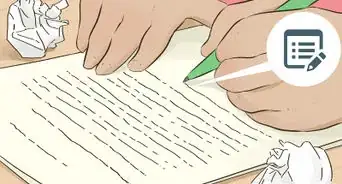


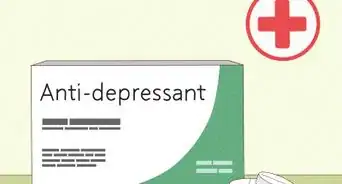


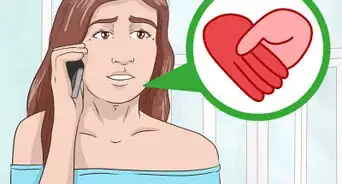














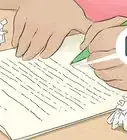




































Medical Disclaimer
The content of this article is not intended to be a substitute for professional medical advice, examination, diagnosis, or treatment. You should always contact your doctor or other qualified healthcare professional before starting, changing, or stopping any kind of health treatment.
Read More...